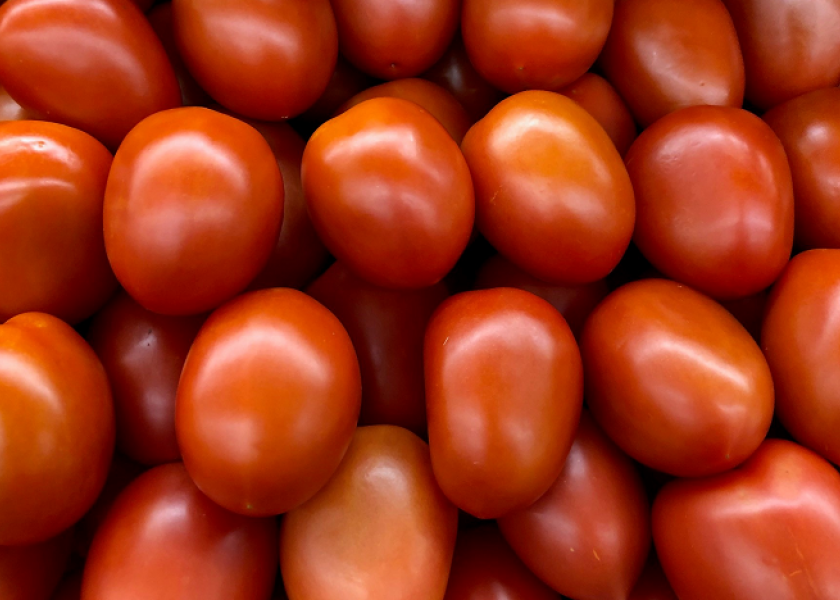New proposal seeks breakthrough for tomato suspension agreement

Three months after the U.S. pulled out of the last agreement, Mexican tomato growers have put forward a new proposal for a tomato suspension agreement with the Department of Commerce.
The suspension agreement between Mexican growers and the department ended May 7, after which the U.S. imposed a 17.56% duty on imports that remains in effect.
A news release from the Nogales, Ariz.-based Fresh Produce Association of the Americas reported the Mexican growers’ proposal of Aug. 5 finds a path forward that “greatly reduces FPAA’s antitrust concerns” with previous proposals from the Department of Commerce. The proposal deserves a fair hearing by the department, FPAA president Lance Jungmeyer said in the release.
“We have made two trips to Washington to meet with the Department of Commerce to explain how the Commerce proposal gives unfair advantage to one type of U.S. seller of Mexican tomatoes over other U.S. sellers of Mexican tomatoes, yet the unjustifiable provisions remain,” Jungmeyer said in the release.
“The Commerce proposal would allow repackers to profiteer on the condition of Mexican tomatoes at destination. By contrast, the new Mexican proposal provides a clear path to remove defective tomatoes from the marketplace. This is a step in the right direction.”
Michael Schadler, executive vice president of the Florida Tomato Exchange, said in an e-mail that the Department of Commerce’s recent preliminary margin decision demonstrates clearly that the 2013 Suspension Agreement failed to stop injurious dumping.
The average dumping margin of over 25% found by the department is substantially higher than the previous margin of 17%, he said in the e-mail.
“The Commerce Department has already put forward two proposals on June 3 and July 17 that have most of the elements needed for a new effective agreement, including border inspections for quality and condition defects,” Schadler said.
“These inspections are essential to enforcing the antidumping reference price. If the Mexicans are unwilling to agree to an effective agreement, then the Commerce Department should just let the antidumping investigation proceed without a new suspension.”
However, Schadler said Florida growers and other domestic tomato producers still are “committed” to further negotiations for a new agreement.
Mexican tomato view
In meetings and written communication with the Department of Commerce, FPAA has told the agency that it is going beyond its statutory authority, particularly with sales price adjustments for defective tomatoes, according to the release. FPAA said the department’s proposal “tramples” on the rights of U.S. buyers and sellers of Mexican tomatoes to claim damages for breach of contract, which are protected under U.S. law, including the Perishable Agricultural Commodities Act.
“When Congress passed PACA in 1937 and gave USDA jurisdiction to protect the rights of sellers and buyers of perishable agricultural commodities, it never imagined that another government agency like Commerce would decide that some American companies would get protections, while others would not,” Jungmeyer said in the release.
In addition, FPAA said it thinks a new suspension agreement must remove the mandate for USDA to inspect every imported lot of Mexican tomatoes. The release said that provision is likely to invite reciprocal inspections on U.S. agricultural products by the Mexican government. The call for mandatory inspections, Jungmeyer said in the release, is an attempt to put in place a non-tariff trade barrier that would cost the supply chain tens of millions of dollars.
“We are hopeful that a new agreement will not include provisions that add 100% inspections or infringe upon PACA’s role in the marketplace,” Jungmeyer said in the release. “Our members have told us loud and clear about the antitrust concerns they see, and we hope Commerce will hear us. So far, our comments are being ignored.”
Related Content
U.S. imports of Mexican tomatoes fall in May and June







